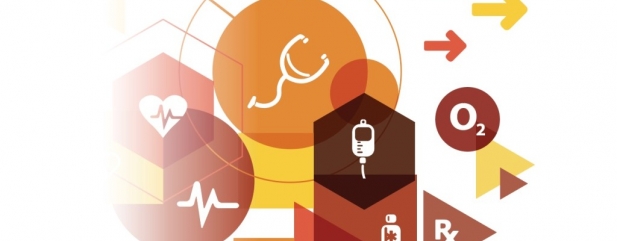Archived article
Please note that tax, investment, pension and ISA rules can change and the information and any views contained in this article may now be inaccurate.
Three stocks to play the digital healthcare revolution

In a world where people could live until 100, it is no surprise health services are struggling to treat an ageing population requiring increasing levels of care.
One solution to this issue is technology, which could relieve pressure on the NHS by allowing people to have video consultations or help monitor their health electronically. It could also drive electronic medical records, helping people to easily change GPs and share information with other care providers.
For investors interested in tapping into digital healthcare trends, UK-listed EMIS (EMIS:AIM), Servelec (SERV) and Kainos (KNOS) work in this area. No companies on the UK stock market provide video consultation services, although this may change in the future.
The chief executive of life sciences resource hub Sarah Haywood believes GP apps have the ‘potential’ to take the strain off the NHS, but says companies need to show the positive effect of the technology and people have to adopt it.
‘Digital tech can put tools into hands of patients. Whether it makes them change is down to behavioural science and how effectively the tech is speaking to the patient,’ says Haywood.
Berenberg analyst Asad Farid thinks an age of digital solutions is nearer than many think, speculating the digital healthcare market will be worth $140bn by 2026.
Digitising medical records
EMIS manages the Patient.info website, which provides healthcare information, while its Patient Access tool lets patients book appointments, order prescriptions and view their medical records.
The healthcare software firm wants to monetise its direct-to-consumer platform Patient by boosting user numbers, improving advertising and media sales, and developing an online market platform to procure clinical services.
N+1 Singer analyst Chris Glasper says this could be ‘transformative’ by adding more than £10m worth of extra profit over the next five years.
Healthcare IT supplier Servelec develops electronic patient records, administration and flow systems used by organisations such as the NHS.
It has been a volatile year for Servelec as it recovered from a challenging UK market for its remote telemetry units, although Glasper thinks these problems are behind the company.
Servelec chief executive officer Alan Stubbs is confident the company can take advantage of integrated systems which enable care providers to work together.
Stubbs is also excited about healthcare becoming ‘mobile’ as it will allow people to become involved in their own care programme.
Kainos offers the Evolve EMR platform that streamlines services and ensures NHS staff have access to accurate information about their patients.
The company wants to help the NHS become paperless by 2020, which would cut costs and ensure medical records are safe through integrated data. However, integrated data needs to be properly developed to ensure it is safe, an issue exposed by the recent cyber attack on the NHS.
Remote consultations and intelligent tech
Outside the stock market, private companies are developing game-changing products. One of these is Dr Now, a mobile platform that connects patients with GPs through a remote video consultation for £42.50 per session. Other companies working in the same area include Push Doctor and Babylon.
Dr Now chief executive Lee Dentith believes his platform is relieving pressure on out-of-hours services by dealing with appointments that don’t necessarily require a consultation such as chronic conditions.
Dr Now plans to allow select clinical commission groups, which plan and commission healthcare services for their local area to use the app for free.
Internal projections suggest this could help cut costs of approximately £75m annually by relieving pressure from A&E and out-of-hours services, and reducing wasted medicines between September 2017 and September 2018.
How big data can drive innovation
Edison analyst Katherine Thompson believes big data is a huge opportunity for the healthcare sector as it could determine if people are at risk of certain diseases through the analysis of anonymous data.
She highlights EMIS Health’s collaboration with the University of Nottingham, which can more accurately predict if a person is at risk of bowel cancer using a web calculator.
Important information:
These articles are provided by Shares magazine which is published by AJ Bell Media, a part of AJ Bell. Shares is not written by AJ Bell.
Shares is provided for your general information and use and is not a personal recommendation to invest. It is not intended to be relied upon by you in making or not making any investment decisions. The investments referred to in these articles will not be suitable for all investors. If in doubt please seek appropriate independent financial advice.
Investors acting on the information in these articles do so at their own risk and AJ Bell Media and its staff do not accept liability for losses suffered by investors as a result of their investment decisions.
Issue contents
Big News
- Brexit puts squeeze on consumers and businesses
- Pressure on Blancco Technology
- Keep toasting cash-generative Conviviality
- Yu Group to beat forecasts
- Weir seeing North American shale recovery
- Carillion bailed out by HS2
- What will McCall do at ITV?
- Sage to sidestep HMRC’s digital delay
- EasyJet reveals post-Brexit plans as CEO departs

 magazine
magazine











